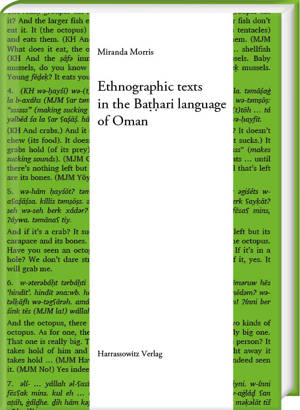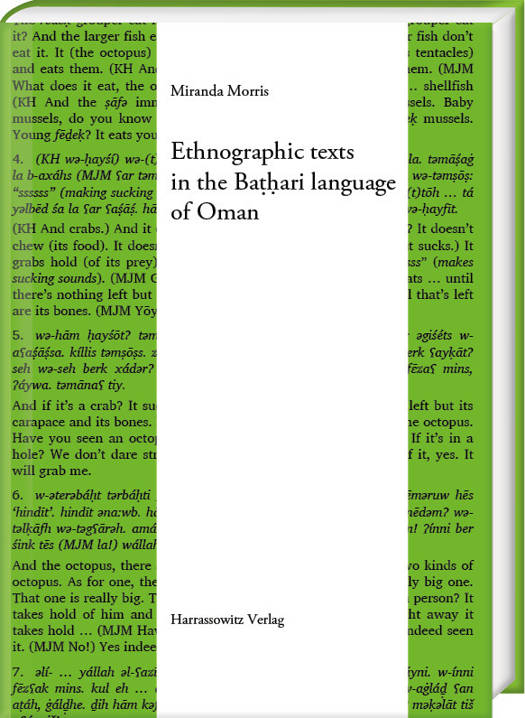
Bedankt voor het vertrouwen het afgelopen jaar! Om jou te bedanken bieden we GRATIS verzending (in België) aan op alles gedurende de hele maand januari.
- Afhalen na 1 uur in een winkel met voorraad
- In januari gratis thuislevering in België
- Ruim aanbod met 7 miljoen producten
Bedankt voor het vertrouwen het afgelopen jaar! Om jou te bedanken bieden we GRATIS verzending (in België) aan op alles gedurende de hele maand januari.
- Afhalen na 1 uur in een winkel met voorraad
- In januari gratis thuislevering in België
- Ruim aanbod met 7 miljoen producten
Zoeken
Omschrijving
Ba hari, called B ahr t by its speakers, is one of the six unwritten Semitic languages of southern Arabia. It is no longer a living language, and today only a handful of older people still speak it. The B ahira were the indigenous inhabitants of the drier areas of Dhofar. Displaced by more powerful incomers, they ended up in this infertile strip of shoreline. Their own migration history recalls a time when their number was greater, but today they are a small tribe, settled in the new towns of Sharbithat and Ashwaymiyah on the coast, or in Zakhr in the desert plateau above. In this book some 400 texts from this remote and marginalised community are presented in B ahr t transcription and English translation, documented through field recordings or by oral transmission directly to the author. The purpose of the recordings, spanning the period from 1976 to 2016, was to study their way of life prior to 1970 and the accession of Sultan Qaboos, when so much changed. The author asked about specific skills, encouraged speakers to reminisce about their past and to recall stories they used to tell. Those who generously shared their memories were all elderly, the product of an earlier oral culture. Formerly, their survival depended on harvesting the sea. Before the dugout canoe, they fished by swimming out to sea on inflated goatskins. The small numbers of goats they raised were therefore as important for their skins as for their meat and milk. The community was largely self-sufficient; they had a wealth of specialist knowledge about the sea and the fauna and flora of their area. It was this expertise that enabled them to extract sustenance from such a harsh and unforgiving environment.
Specificaties
Betrokkenen
- Auteur(s):
- Uitgeverij:
Inhoud
- Aantal bladzijden:
- 826
- Taal:
- Engels
- Reeks:
- Reeksnummer:
- nr. 63
Eigenschappen
- Productcode (EAN):
- 9783447120845
- Uitvoering:
- Hardcover
- Afmetingen:
- 180 mm x 58 mm
- Gewicht:
- 1711 g

Alleen bij Standaard Boekhandel
+ 291 punten op je klantenkaart van Standaard Boekhandel
Beoordelingen
We publiceren alleen reviews die voldoen aan de voorwaarden voor reviews. Bekijk onze voorwaarden voor reviews.









